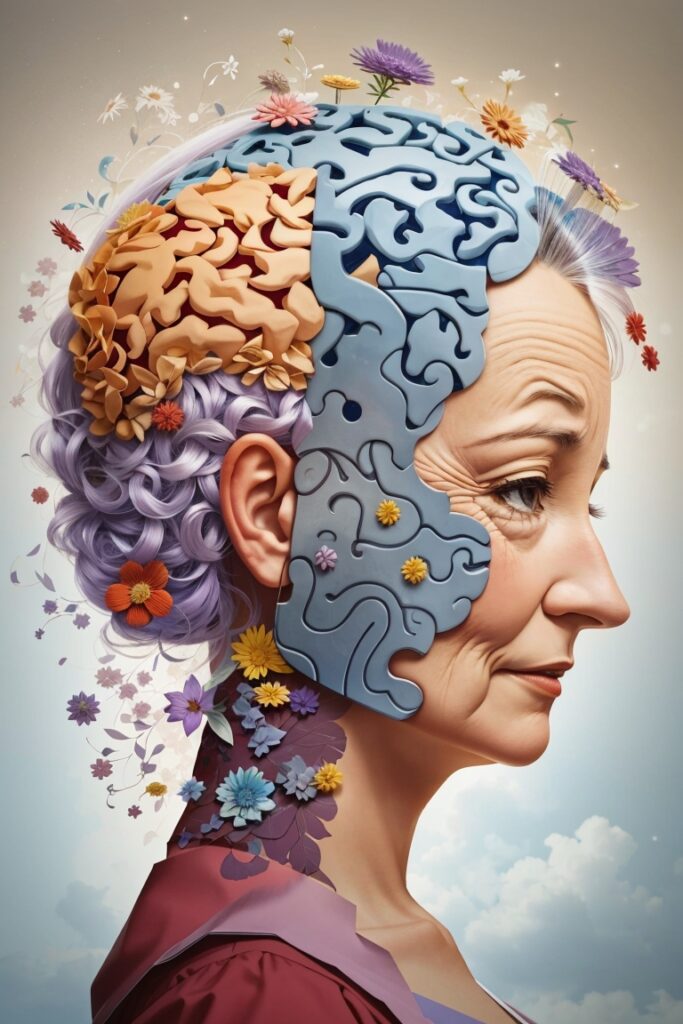
What is Alzheimer’s
Alzheimer’s, a progressive neurodegenerative disorder, remains one of our aging population’s most significant challenges. Named after German psychiatrist Alois Alzheimer, who described the condition in 1906, Alzheimer’s is characterized by the decline of cognitive abilities and memory loss. This article explores the underlying causes, symptoms, diagnosis, and potential treatments for this devastating disease.
The Science Behind Alzheimer’s
Alzheimer’s disease affects the brain, causing the gradual deterioration of nerve cells, known as neurons, and the connections between them, leading to impaired brain function. The cause of Alzheimer’s is not understood yet, plus, researchers believe that a combination of genetic and lifestyle factors contribute to its development.
Someone with Alzheimer’s has two main abnormal structures found in the brain: amyloid plaques and tau tangles. Amyloid plaques are clumps of beta-amyloid proteins that accumulate between nerve cells, disrupting cell communication and causing cell death. Tau tangles, on the other hand, are twisted fibers that build up inside neurons, hindering their proper functioning.

Symptoms and Stages
Also, Alzheimer’s disease progresses through different stages, each marked by specific symptoms. The early stages often manifest as subtle memory lapses and difficulties with language or problem-solving. As the disease advances, individuals may experience confusion, mood swings, personality changes, and difficulty performing everyday tasks.
As the condition worsens, it can severely impair a person’s ability to communicate, recognize loved ones, and carry out even the simplest activities. In the later stages, individuals with Alzheimer’s require constant care and support as the disease profoundly affects their physical and mental health.
Diagnosis
Diagnosing Alzheimer’s disease is challenging, particularly in its early stages. As memory loss can be a common aspect of the normal aging process. Typically, a comprehensive assessment involving medical history, cognitive tests, neurological exams, and brain imaging is necessary to rule out other potential causes of cognitive decline.
Early diagnosis is crucial as it allows individuals to access appropriate treatment, plan for the future, and participate in clinical trials to further research potential treatments and interventions.
Risk Factors and Prevention
While age remains the most significant risk factor for Alzheimer’s disease, certain lifestyle choices and health conditions may increase the likelihood of developing the condition. These risk factors include a family history of Alzheimer’s, a sedentary lifestyle, obesity, diabetes, high blood pressure, and smoking.
While there is no guaranteed method to prevent Alzheimer’s, adopting a brain-healthy lifestyle can significantly reduce the risk of cognitive decline. Regular physical activity, a balanced diet rich in fruits, vegetables, and omega-3 fatty acids, mental stimulation, social engagement, and managing cardiovascular risk factors are all thought to contribute to brain health.
Current Treatments and Ongoing Research
As of my knowledge cutoff in September 2021, there is no cure for Alzheimer’s disease. While the available treatments aim to manage symptoms, slow disease progression, and enhance the quality of life. Medications prescribed by doctors are Cholinesterase inhibitors and memantine.
Researchers continue to explore various treatment avenues, including immunotherapies that target amyloid plaques, anti-tau therapies, and medications designed to enhance brain cell communication. Additionally, studies are ongoing to investigate the role of lifestyle factors, such as diet, exercise, and cognitive training. In potentially preventing or delaying the onset of the disease.
Alzheimer’s disease remains a formidable global health challenge that affects millions of individuals and their families. Public awareness, continued research funding, and support for affected individuals. Their caregivers are vital components in finding a cure and improving the quality of life for those living with Alzheimer’s. We remain hopeful that one day, we will conquer this devastating neurological disorder.

